
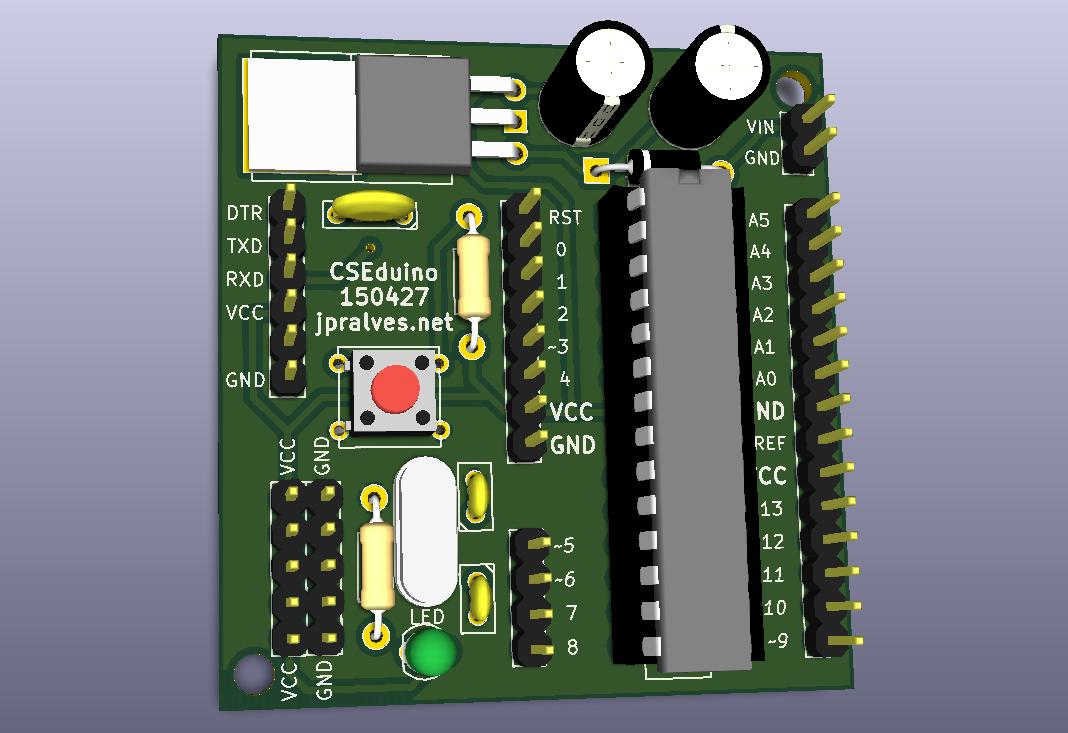
CSEduino is the answer to a very low cost DIY Arduino like board. This version has a 2-layer pcb created with kicad.
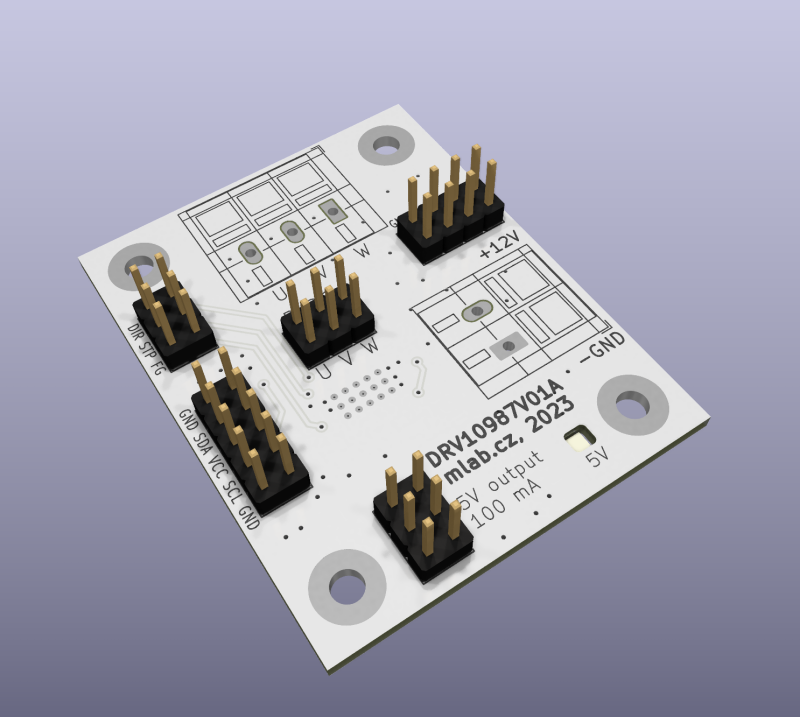
The DRV10987V01 is an MLAB module featuring the DRV10987 controller by Texas Instruments, designed for sensorless operation of Brushless DC (BLDC) and Permanent Magnet Synchronous Motors (PMSM). It’s a compact, powerful solution for driving motors with diverse voltage requirements, offering a continuous current of 2A and peak current of 3A. The module can control motor speed based on PWM, analogue, or digital (I2C) input, and has built-in functions for overload and overheat protection. It’s ideal for applications like robotic systems, home appliances, and hobby projects.
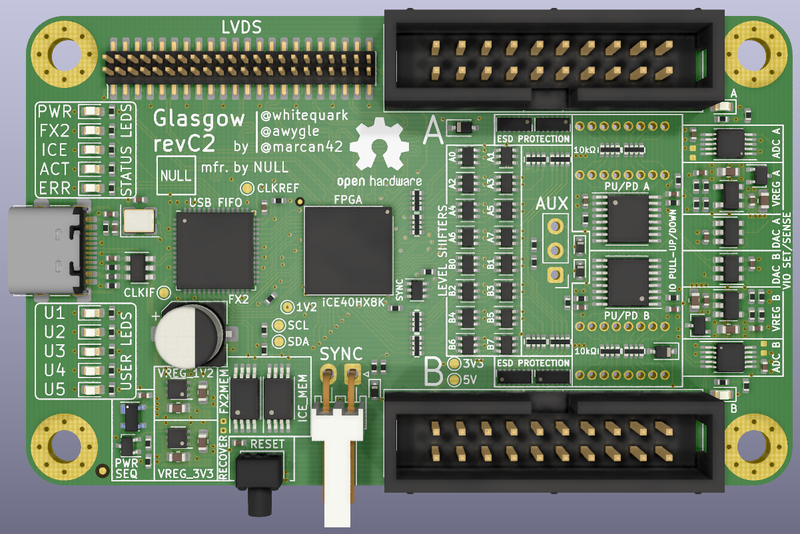
Glasgow is a tool for exploring digital interfaces, aimed at embedded developers, reverse engineers, digital archivists, electronics hobbyists, and everyone else who wants to communicate to a wide selection of digital devices with high reliability and minimum hassle.
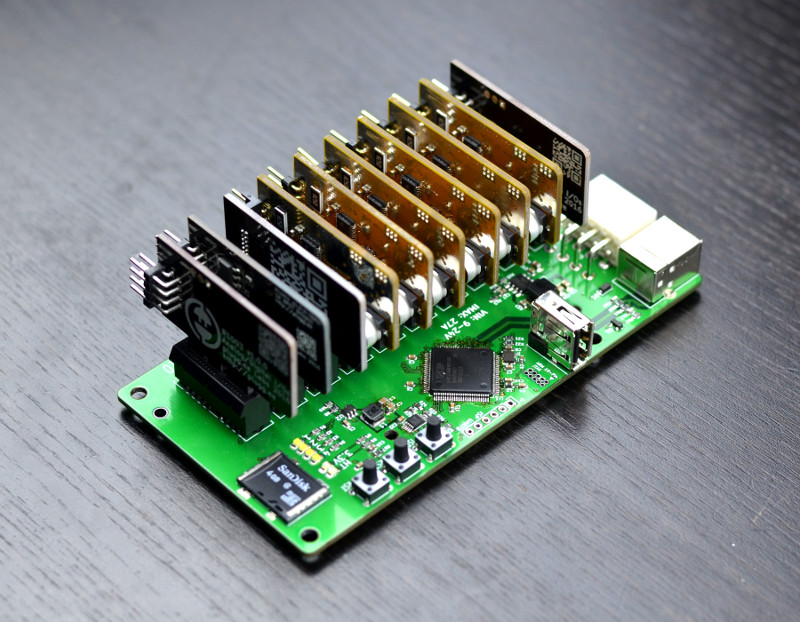
JuicyBoard from plugg.ee Labs is an open source modular robotics platform that can be used to build custom 3D printers, CNC machines and more.
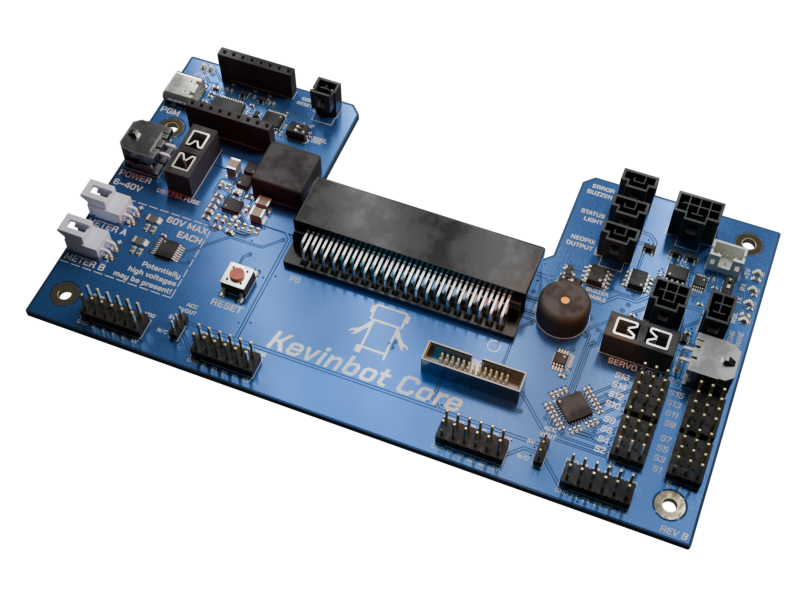
The Kevinbot Core is a Parallax Propeller 2 Edge Breakout Board designed for robotics use.
It features a wide input voltage range, 51 exposed I/O Pins, 16 PWM outputs, RS-422 Serial, I2C and One-Wire interfaces, an expandable design, and more.
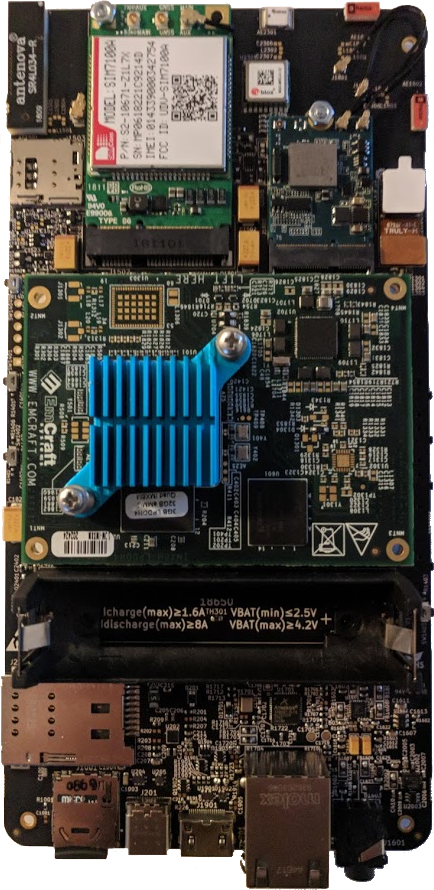
The Librem 5 Dev Kit is a smartphone developer kit that is used by software developers to create apps and other software for the final Librem 5 GNU/Linux smartphone. The baseboard design uses an i.MX 8M System-On-Module (SOM), a SIMCom SIM7100A/E baseband modem mPCIe module, and a RedPine RS9116 WiFi+BT M.2 module. It includes a 720x1440 capacitive touch LCD, a dual-role capable USB-C port, a Mini-HDMI port, an RJ45 ethernet port, a 3.5mm headset audio jack, a microSD slot, a 3FF micro-SIM card slot, a 2FF smartcard slot, a GSM/3G/LTE WWAN SMD antenna, a GNSS/GPS module and SMD antenna, two WLAN SMD antennas including one for diversity, a 5MP camera, an earpiece speaker, a microphone, a 9-axis IMU, an ambient light+proximity sensor, a haptic motor, a user-controllable indication LED, an 18650 li-ion battery holder for use with an on-board charge controller, and kill switches for WWAN, WiFi+BT, & camera+mic.
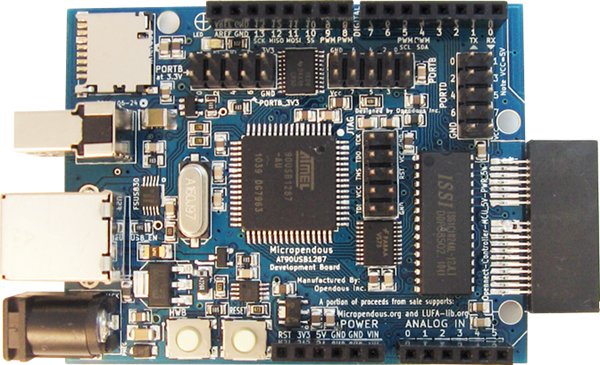
The Micropendous boards were Development Boards for Atmel’s USB AVR Microcontrollers with a Free and Open Source Software (FOSS) hardware, firmware, and software development platform. They were designed for USB peripheral and hosting development.
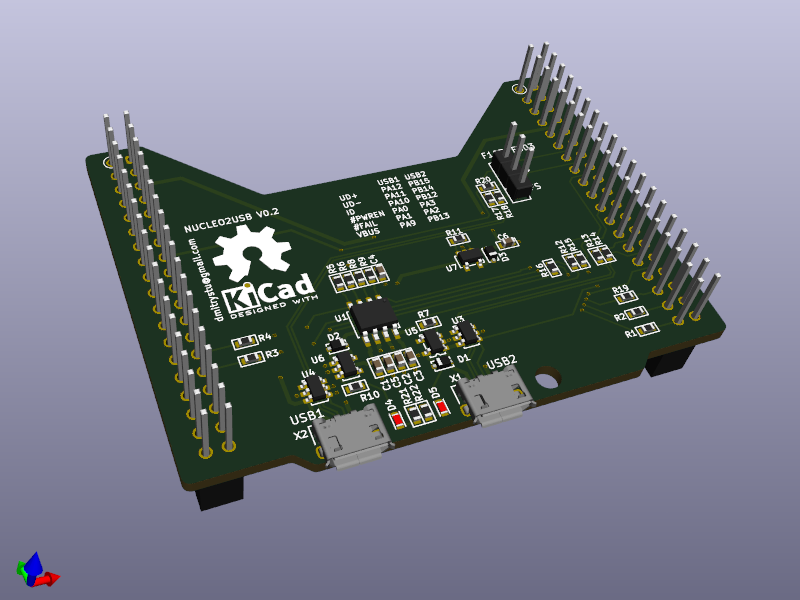
NUCLEO2USB is the USBFS shield for the NUCLEO-64© compatible development boards. It can be configured as 1xDEVFS with speed override (F103/F303), 1xOTGFS, 2xOTGFS.
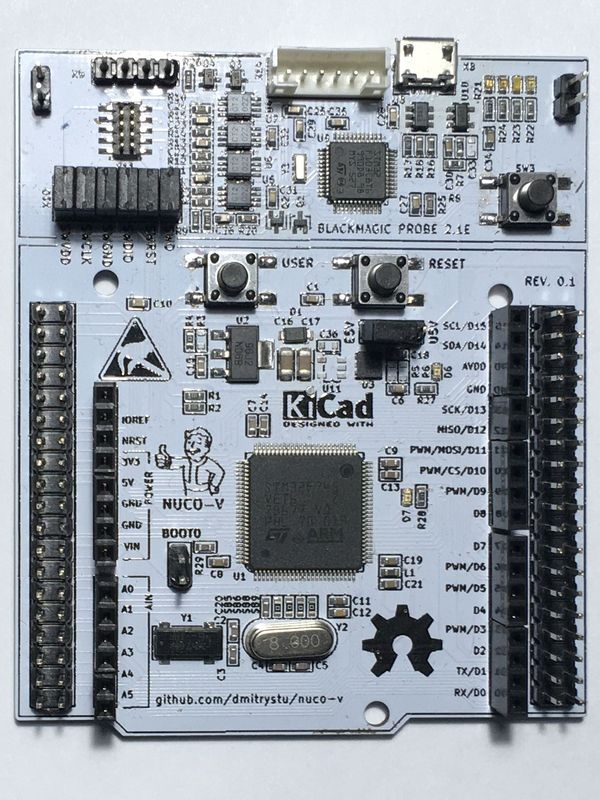
NUCO-V is a NUCLEO-64© compatible development board for the STM32F7 and STM32H7 series with integrated Black Magic Probe
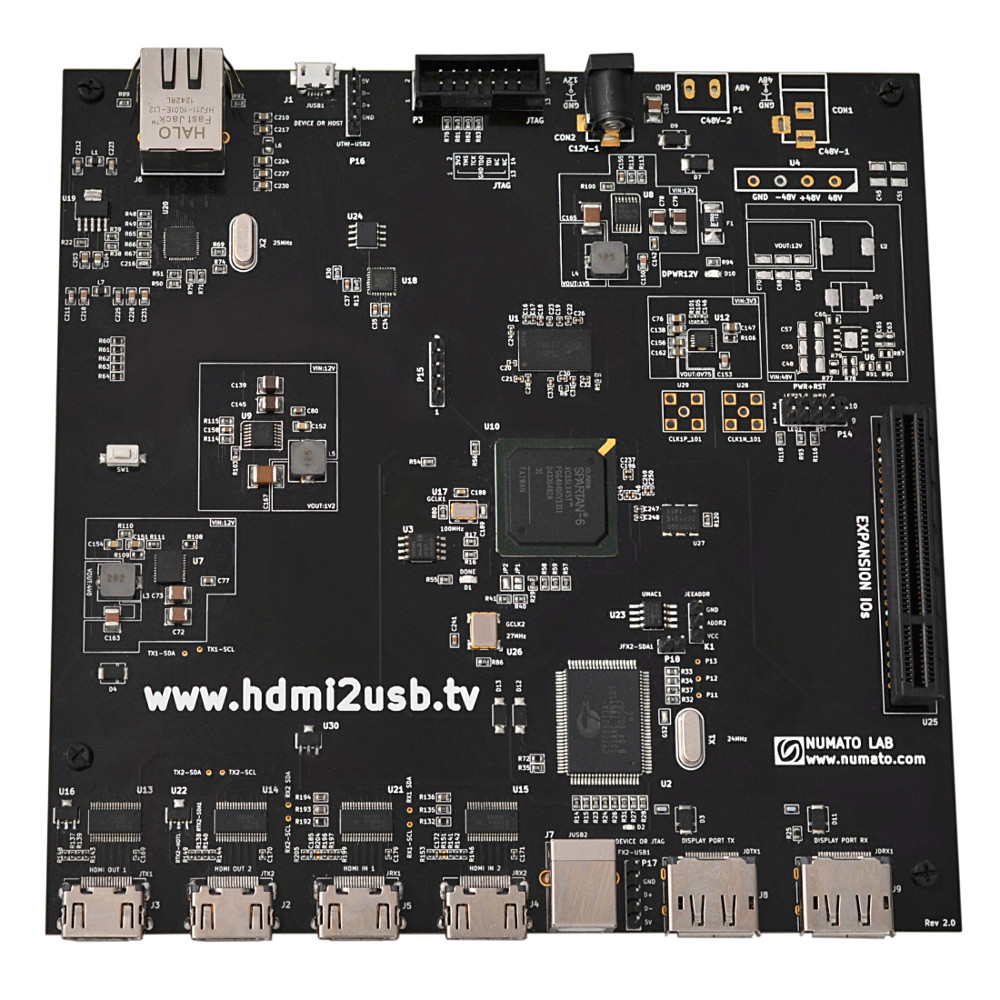
The Opsis is a powerful FPGA-based open source video platform for videographers and visual artists and designed to give the user complete control over high-speed video, enabling everything from real-time conference capturing solutions, to experimental visual art and even general FPGA-based video research.
Created in collaboration between the Numato Lab and TimVideos.us live event streaming project, the Opsis is the ideal device for the HDMI2USB.tv video capturing firmware, which allows for “fool-proof” video recording from any computer.